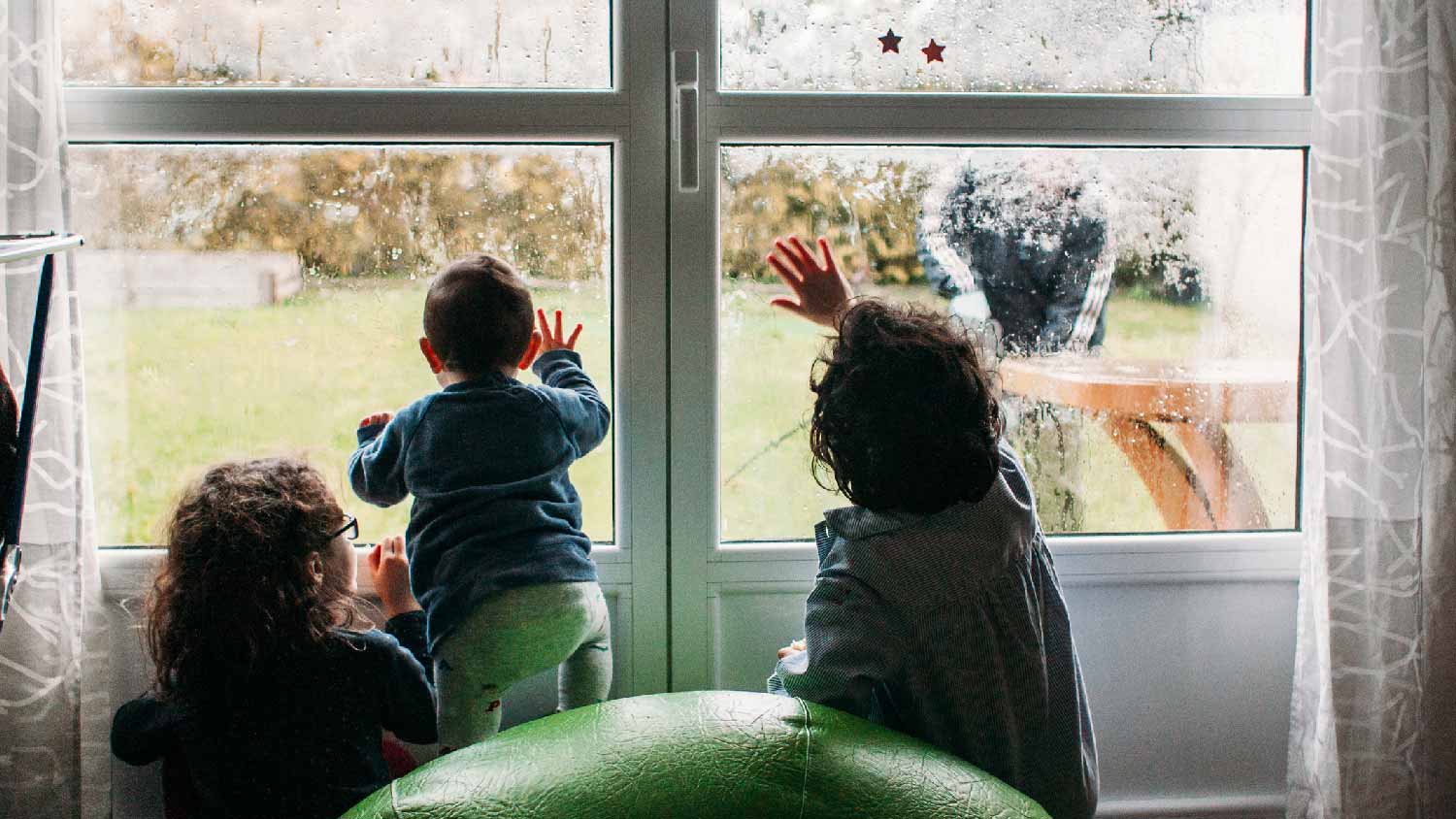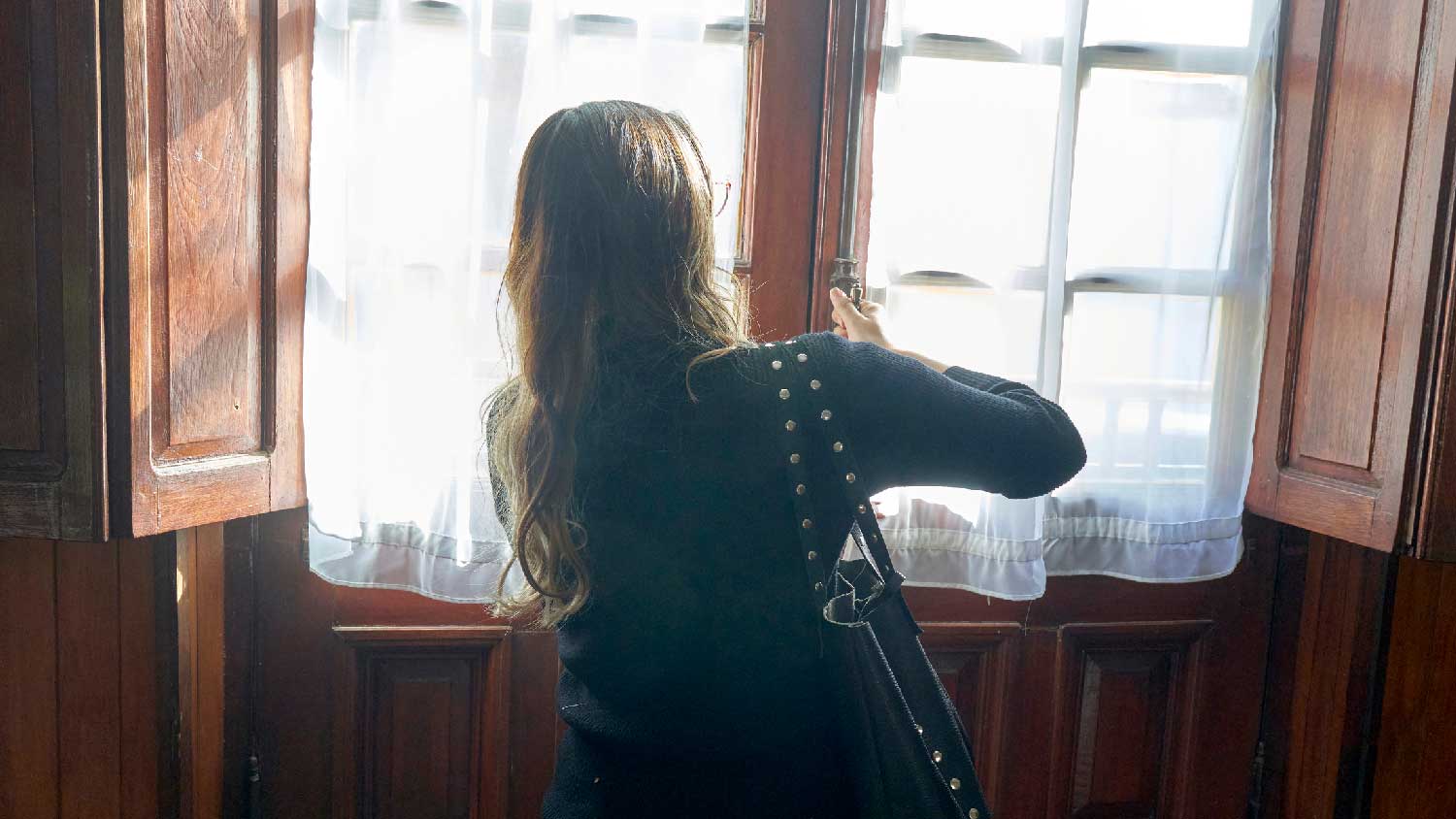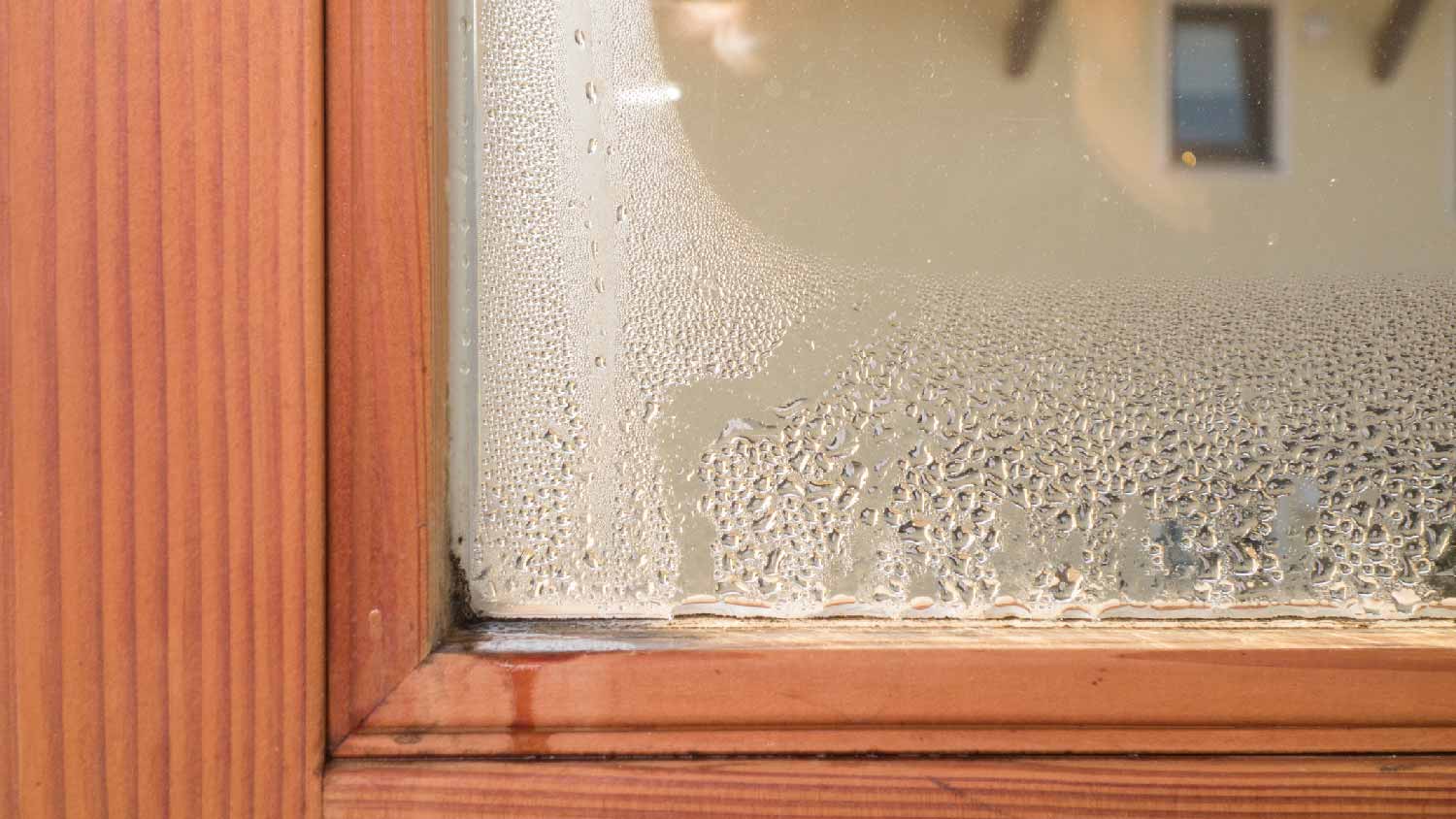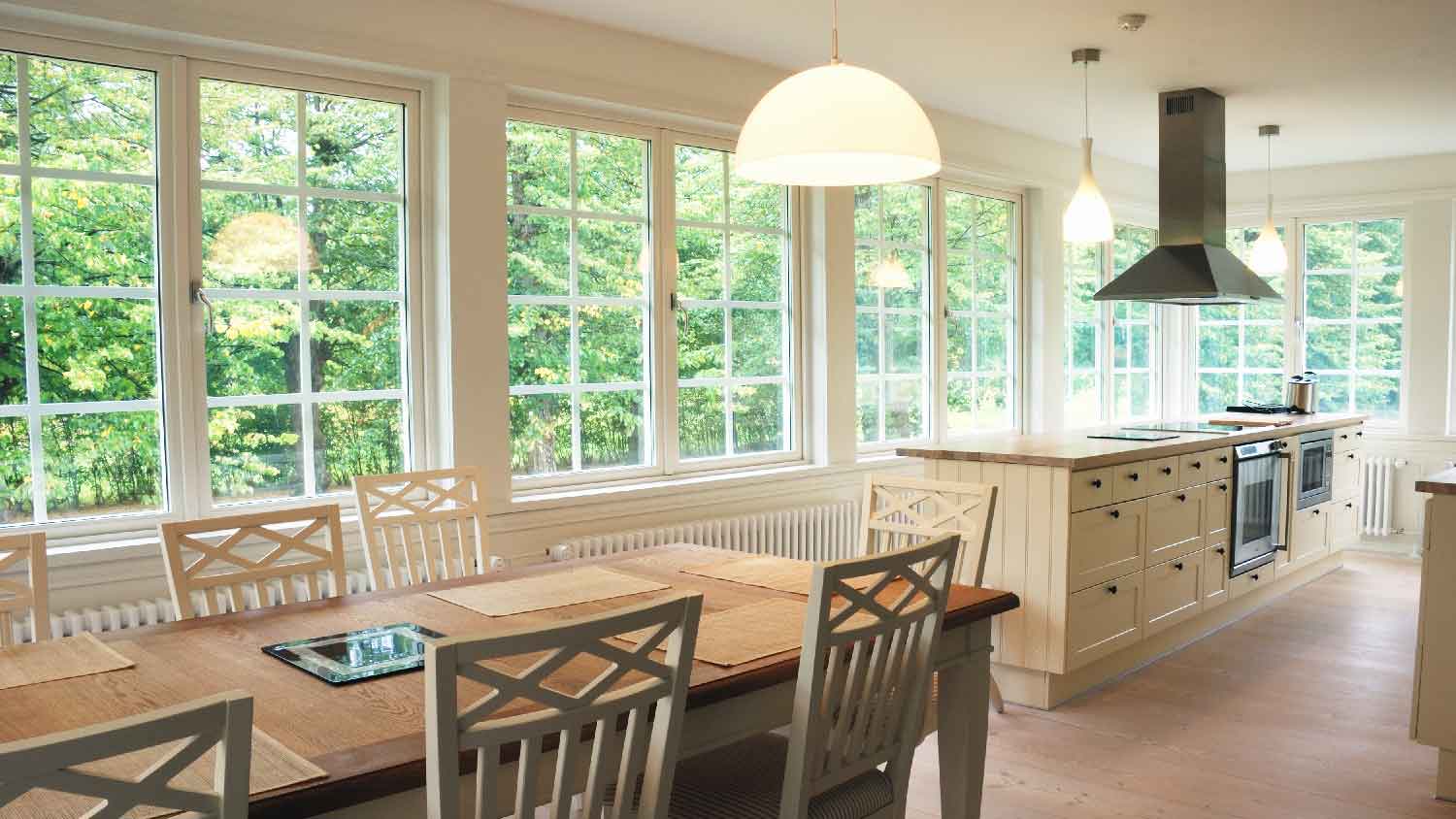When to Replace Windows: 10 Signs That It’s Time to Start Shopping
Let’s shine some light on when to replace windows


Replacing windows is a good idea if you notice air or water leaks.
Replacing windows boosts your home’s value and increases its energy efficiency.
You can often repair windows instead of replacing them—it might be more worthwhile if they’re less than ten years old.
Brand new windows can lower your energy bills, make your home more comfortable, and boost your home’s appearance. But you may wonder whether a simple repair can suffice or if you should finally make room in the budget for all new windows.
How do you know when to replace windows? Our helpful guide will help you decipher when you should start budgeting for those replacements. You may need new windows in your home if you’re experiencing one or more of these common issues.
1. The Room Feels Drafty
If air is leaking through your windows, you’ll feel cool drafts and may even hear the wind whistling through them. If you’ve caulked your windows and installed weatherstripping but are still experiencing draftiness, it might be time for a total window replacement. At this point, new windows will make your living space more comfortable and can reduce your heating and cooling bills.
2. The Glass Is Foggy

When you have double- or triple-paned windows, condensation can get trapped between the panes if a seal around the pane breaks. If your windows seem cloudy or foggy, it could mean there’s a leak, which requires a window replacement, although you may be able to fix the seal on the window instead of replacing the entire unit—especially if your window frame is still in good shape.
3. Your Energy Bills Are High
If your old windows aren’t energy-efficient, they leak hot and cold air to the outside, causing your heating and cooling systems to work harder to keep your home comfortable. Not only does this lead to skyrocketing utility bills, but it also strains your heating and cooling equipment. This can increase how often you have to pay for maintenance and even decrease the overall life span of the systems.
4. Your Windows Don’t Open or Close Properly

If your windows get stuck or don't close all the way, it could be due to a shifting foundation, window frame deterioration, or a painted-shut window. You'll likely need to replace your windows and frames to restore full functionality. We recommend hiring a window company near you to assess the issue before performing a fix yourself, as a foundation issue is more serious and will warp your new windows over time, as well.
5. Your Window Frames Are Soft
If you have wood windows, moisture can cause the outside framing to rot. If your exterior framing feels soft or spongy to the touch, you’ll want to replace your windows and frames soon.
6. Water Is Seeping In

If you notice water coming in through your windows, it’s a sign that you should get new windows. When a window leaks, you might not see physical water dripping in, so keep an eye out for the following problems:
Warped flooring under your window
Warped or water-logged frame material
Wet or pliable drywall under or around your windows
High humidity in the room
Water stains on the interior frame or surrounding materials
Water damage can be expensive and cause major issues in your home, including electrical fires, damage to flooring, and even foundation issues if the leak is severe enough. If you have evidence of a window leak, hire a window contractor for a solution right away.
7. Your Windows Are Letting in Too Much Sound
Windows aren’t as thick and insulated as your walls, but that doesn’t mean you should hear everything going on outside when they’re shut. Modern windows, especially double- or triple-pane options, are great at blocking out exterior noise.
If you’re constantly cranking up the TV volume or having to repeat yourself to your family during dinner because of traffic, sirens, music, landscaping equipment, and other outside noise, consider an upgrade to more soundproof windows.
Keep in mind that sound coming in through your windows is not only a nuisance but can be indicative of a larger issue. Windows that let in an inordinate amount of outside noise probably aren’t doing a great job of keeping outdoor air out, either. Knowing when to replace your windows that let in too much sound can also save you money on utility bills.
8. Your Allergies Are Getting Worse Each Season

When spring hits, you may be tempted to crack open the windows and enjoy the fresh air—unless you’ve got severe grass and pollen allergies. But if you notice your allergies are affecting you more than usual, even with the windows closed, it could be a sign that your window seals have deteriorated and are letting pollen and other allergens inside.
In that case, your best bet is installing new windows for a more effective seal (and a sniffle-free spring season).
9. You Want to Update the Look
Older windows and window frames can hinder your home’s appearance, especially if they’re vinyl and you want a new window frame color to spruce up your curb appeal. Choosing replacement windows can make your home appear more modern, up-to-date, and beautiful. There’s even more you can do to windows on the inside to update the look of your home. Try investing in some trendy kitchen window ideas to transform your space.
10. You Want to Increase the Value of Your Home

Thinking about selling your home in the near future? Replacement windows are one of the highest-ROI remodeling projects you can do to attract buyers. Potential home buyers may pass on making an offer if they notice your home has old, inefficient windows—they won’t want to have to drop a bunch of money to update them right after draining their savings on a down payment.
On the flip side, you can use new windows as a selling point in your listing. This could lead to more competitive bids and a faster sale. So, how much added value are we talking about? You can usually expect to see a 68% return on investment when installing replacement windows.
Repairing vs. Replacing Windows
So, how do you know when to replace windows and when you can just repair them to save some money? If you’re deciding whether you should go with new construction or replacement windows or just repair the windows you already have, cost and long-term benefits will be the most important things to consider.
At roughly $175 to $600, the cost of window repair is often lower than window replacement costs, which average around $282 with a range of $100 up to about $1,500,but it’s not always the right call.
So when should you replace windows? If your windows are nearing the end of their life span, are leading to increased heating and cooling bills, their frames are rotting, or they’re no longer operable, you should probably replace your windows. Alternatively, it may make sense to repair windows if:
The glass is broken: Just hire a local window repair pro to replace the glass—this is known as window reglazing.
One component is broken: If all your window needs is a new locking mechanism or exterior drip cap, replace the broken component—not the entire window.
The windows are historic: Many historic districts have specific guidelines about a house's exterior, including windows. Sometimes, it's more cost-effective to make your old windows more energy-efficient rather than replace them. Plus, many antique windows in old houses are made of durable old-growth wood, so they can stand up to decades of use and may be more valuable and attractive than new windows, especially to buyers who appreciate those details.
You have expensive frame materials: If you’ve previously invested in windows with fiberglass frames that are much more expensive as some other frame materials, it’s worthwhile to keep those frames in place and hire a window repair professional to carry out any glass repair or replacement instead of replacing the entire window.

Timothy Moore contributed to this piece.
Frequently Asked Questions
Replacing all your windows at once saves you money per window because most installers will bring down the per-window cost if you hire them for multiple windows. This reduces your costs in the long run, but it’s a much more significant investment all at once. Getting all new windows can create a cohesive style and boost the value of your home. You can certainly replace some of your windows and not all of them, but avoid replacing fewer than five windows at a time to avoid higher overhead costs.
The average cost to repair a window is around $400, but you could pay as little as $100, depending on the type of repair you need. Replacing a window can cost as little as around $175, but prices could reach up to $1,800 for high-end frame or glass materials or larger windows. You could pay about $6,500 or more for bay windows or bow windows. Window replacement costs more than window repair, which is why it’s so important to know when to replace windows and when a repair will suffice.
Most windows last between 15 and 30 years. The exact life span depends on a few things, including the frame material, the quality and type of glass, the weather in your area, whether or not the window is installed properly, and more. You can always speak with a window professional about whether or not it’s time to replace your windows or if repairs would be more affordable. You’ll need to consider the cost of replacing your windows, the cost of repair, and the longevity of each solution.





- Types of Old Windows and When to Replace Them
- Do New Windows Increase Home Value? This Home Improvement Could Be Well Worth It
- How to Choose the Best Replacement Windows for Old Houses
- Should You Replace All Windows at Once? Here’s Why the Answer Is Yes
- 14 Things to Consider Before Buying Windows
- How Long Do Windows Last and When Should You Replace Your Windows?
- Do Windows With Broken Seals Need to Be Replaced?
- Replacement vs. New Construction Windows: Which Should You Choose?
- Try These 8 Tips to Breathe Life Back Into Old Windows
- 7 Common Window Problems and How to Avoid Them










